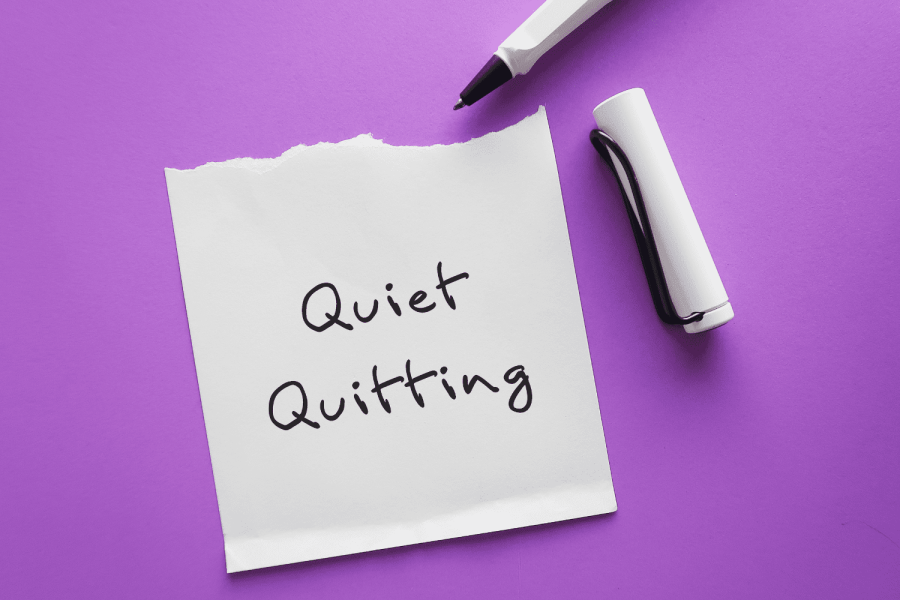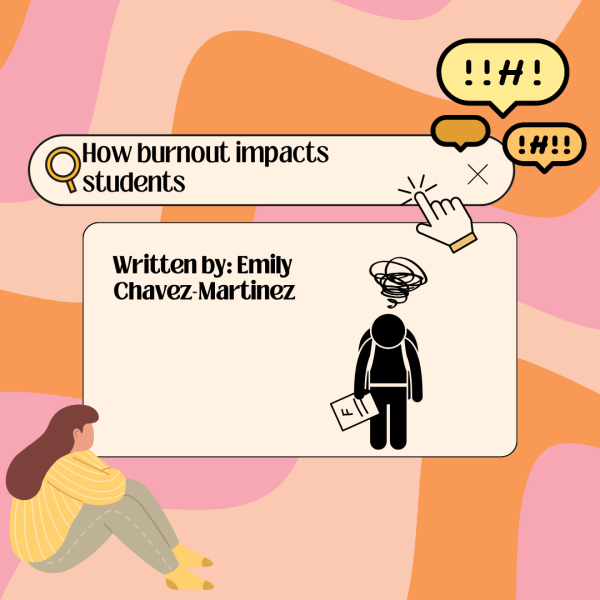Quiet Quitting
In recent months, employers have invented a new term called “quiet quitting.” What is this new term, where did it stem from, and why is it on the uprise?
Quiet quitting is not exactly what the term entails. In fact, it has no connection to quitting at all. According to Wikipedia, quiet quitting is the “application of work-to-rule, in which employees work within defined work hours and engage in work-related activities solely within those hours.”
To simplify, the employee is merely doing the work entailed in the job description and nothing more. They don’t usually work overtime, and tend to refuse assignments that are tailored towards another trained professional.
There are numerous stances on this term, yet the most prominent are those who are doing this, and the companies who hold a more malicious stance.
For example, an article by The Guardian states, “Rather than working late on a Friday evening, organizing the annual team-building trip to Slough or volunteering to supervise the boss’s teenager on work experience, the quiet quitters are avoiding the above and beyond, the hustle culture mentality, or what psychologists call ‘occupational citizenship behaviors. Instead, they are doing just enough in the office to keep up, then leaving work on time and muting Slack. Then posting about it on social media” (The Guardian, Quiet quitting: why doing the bare minimum at work has gone global).
This article quite blatantly states its bias, and at the same time, shows the anger that companies hold towards employees doing the “bare minimum.”
On another note, an article by Healthline states that “…Some see it as an antidote to hustle culture: a concept that suggests we must work tirelessly, often to the point of burnout, in pursuit of our goals. If you’re feeling stressed or unmotivated at work, quiet quitting might seem like a good option, allowing you to strike a better work-life balance… Psychologist and well-being consultant Lee Chambers says quiet quitting is often a coping mechanism used to address the likelihood of burnout and chronic overworking.” (Healthline, Is ‘Quiet Quitting’ Really Good for Your Health? What Experts Think).
This article takes the employee’s side, trying to provide an explanation for their behavior in hopes for the companies to understand. Thus, like always, there is a positive side and a negative side. The issue of this “trend” is finding what is actually correct, and if there is a solution to this wide-spread problem.
Many employees have found that quiet quitting has been beneficial for their health, so is it really a bad thing? In accordance with the Bureau of Labor Statistics, they stated that productivity in companies has fallen 2.5% since the same period of 2021, which is found to be the steepest drop since 1948.
This can end up harming the company that they are working for, possibly leading to an economic crisis. Whilst employees are mostly participating to protect their mental health and to fight the “hustle culture”, this may even affect their job security, as employers have begun to fire employees who have joined in on the “trend.”
However, keeping a healthy work-life balance is not exactly a bad thing either, as many companies run their employees into the ground with projects, assignments, late Friday nights, and having them work unpaid overtime. If anything, this quiet quitting movement should be a clear sign that there needs to be some changes made in the workplace environment.
So, with that said, why is it called quiet quitting in the first place?
Zaid Khan, a 20-year-old engineer states, “I recently learned about this term called quiet quitting, where you’re not outright quitting your job, but you’re quitting the idea of going above and beyond…you’re still performing your duties, but you’re no longer subscribing to the hustle culture mentality that work has to be your life. The reality is it’s not — and your worth as a person is not defined by your labor.” (NPR, The economics behind ‘quiet quitting’-and what we should call it instead).
To put it simply, it is the idea of choosing not to put forth your best effort, to go above and beyond, to better help your mental health. However, employers call it “quitting” due to employees not giving their best towards their assignments.
Many agree that the name is quite off-putting, so NPR reached out to see what other names this movement could be called. The reports came in with, “Reverse hustle, work-life integration, acting your wage, workforce disassociation, corporate coasting, DYJ: doing your job, working to rule, working to thrive, and morale-adjusted productivity” (NPR, The economics behind ‘quiet quitting’-and what we should call it instead).
Many hope to change the term soon, as numerous individuals are continuously being perplexed by the name.
If employers want this to stop, what can they do to help, and how can they recognize the signs?
According to Exos, a few blatant factors of quiet quitting may be that the employee has stopped working past their assigned hours, quit doing extra assignments, and makes sure to utilize all their vacation days, sick days, and break time. So, if companies want employees to work at “maximum efficiency” or to put in a bit more effort, they need to encourage a healthy work-life balance by having boundaries, paid time off, and not forcing employees to do the work of another department.
Employees are not machines; they are human. These seemingly small changes can significantly assist in the employee’s quality of life, increase productivity, reduce burnout, and could even create a better work environment (Exos)(Globalization Partners). If these conditions are possible, then the “trend” of quiet quitting may release the hold it has on millions of individuals across the country.
Hopefully, instead of villainizing the concept, the companies choose to assist their employees to better their company for the future workforce. While we recognize that the concept is for the betterment of the employee, some may be doing it due to an aspect of laziness. If the quiet quitting lingo subsides, hopefully, those employees who are merely lazing along will improve their productivity.
With all stated, what do you think is the best-case scenario? Should companies re-construct their policies? Should employee’s change their mentality? Is quiet quitting a good thing in general? Or is it a terror that has gone unpunished for too long?
Your donation will support the student journalists of Dakota High School. Your contribution will allow us to purchase equipment and cover our annual website hosting costs.

Jade Lilly is a senior at Dakota High School. This is her first year writing for the Dakota Planet, but she has plenty of experience towards writing professional...










